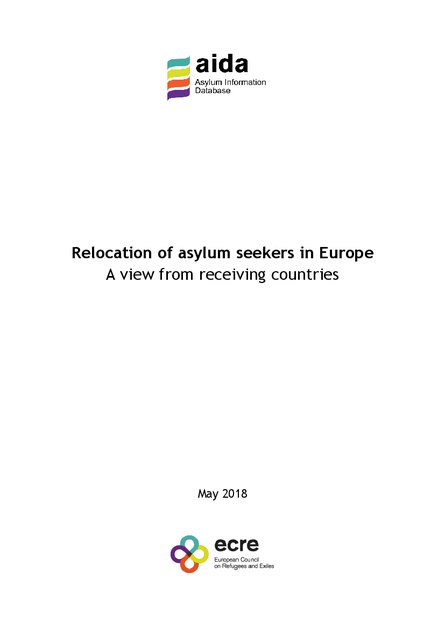
The main focus of official reporting from the European Commission, research, advocacy, political debate, or even judicial proceedings on the implementation of the relocation scheme has been the process of pledges and requests in Italy and Greece, the pace and numbers of transfers, obstacles to the submission of pledges or completion of transfers, the profiles of relocated asylum seekers and related questions. The way countries of relocation have treated relocated asylum seekers upon arrival, processed their claims, granted them status and reception conditions has not been analysed with equal rigour, however. The European Commission has not monitored or reported on the rights and conditions available to relocated persons after their transfer from Italy or Greece, despite calls from the United Nations High Commissioner for Refugees (UNHCR) to do so. Only a few countries have carried out evaluations of the relocation scheme in their domestic context, while some information has been made available by civil society organisations, not least in the context of earlier research under the Asylum Information Database (AIDA).
This briefing aims to contribute to a better understanding and assessment of relocation through an analysis of the practice of receiving countries. Based on information from Italy, Greece and 15 countries participating in the relocation scheme (Austria, Belgium, Bulgaria, Cyprus, Germany, France, Croatia, Ireland, Malta, the Netherlands, Portugal, Romania, Sweden, Slovenia and Switzerland), it sketches out the approaches taken by countries of relocation with regard to selected aspects of the relocation process, namely the rejection of relocation requests and the duration of the procedure. It then focuses on the treatment of asylum seekers post-relocation in the areas of registration and processing of asylum claims, protection status granted, as well as reception conditions and content of protection provided by destination countries.